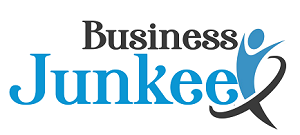Nowadays, active planning is essential for steady career growth, helping you navigate career paths, learn new skills, and achieve long-term goals. A good career development plan can be your roadmap to help you discover strengths, fix weaknesses, and prepare for future success. Understanding how to create an effective career development plan can empower you to control your professional future.
1. Self-Assessment: Understanding Your Foundation
To create a dependable career development plan, start with a self-assessment. Begin by finding your core values, interests, strengths, and weaknesses. Consider your personality and work style to ensure you fit potential career paths.
Beyond current skills, also consider your long-term goals. Knowing your basics brings clarity, ensuring your future career choices are similar to your true self and deepest wishes. This personal insight forms the strong base for your whole career strategy.
2. Setting Clear Career Goals
Once you understand yourself, the next key step is setting SMART career goals. SMART means Specific, Measurable, Achievable, Relevant, and Time-bound. These goals give direction and motivation for your career development plan. Separate short-term goals from long-term ones, and break big goals into smaller steps.
These goals should directly show what you learned about yourself and what you want. For example, if your long-term goal is leadership, a short-term goal might be to finish a management training course. Clear goals help you focus your efforts and resources well, giving you a real target for your career growth.
3. Identifying Skill Gaps and Development Needs
After setting goals, find the skills and knowledge you need to reach them. Compare your current skills with what your desired job demands, as this gap analysis is a critical part of your career development plan. Examine job descriptions for your target roles to understand specific skill needs.
This step may show requirements for formal education, certifications, or practical experience. Fixing gaps in hard and soft skills creates a stronger profile, making you a stronger candidate for future opportunities.
4. Crafting a Strategy for Skill Acquisition
With known skill gaps, you need a plan to gain these new skills, meaning formal training, continuous learning, and real-world practice. Look for courses, workshops, or online platforms offering relevant certifications or skill-building programs. For example, taking a resume writing and interview skills workshop can improve your job search, even if you already have a job.
Look for opportunities to learn at work, such as volunteering for projects that expose you to new experiences, or finding a mentor to guide your growth. Actively using new skills in real situations makes your learning stick. This hands-on approach builds confidence and provides experience for your career development plan.
5. Building Your Network and Seeking Feedback
Networking is a powerful tool in career development. Actively connect with professionals in your target industry or desired roles by joining industry events, professional groups, and using platforms like LinkedIn. These connections can provide valuable insights, mentor opportunities, and possible job leads.
Getting feedback is equally vital. Ask bosses, mentors, or trusted co-workers for honest feedback on your work to help you refine your skills and adjust your career development plan as needed. It assists in fixing blind spots and keeps improving your professional abilities.
6. Regular Review and Adaptation
A career development plan needs regular checks and changes. The job market, industry trends, and your own goals can all change over time. Schedule regular reviews to check your progress, celebrate wins, and adjust your goals or plans as needed.
This approach ensures your plan stays relevant. You might find new interests, see unexpected opportunities, or face problems that need a new direction. Being flexible and responsive with your career development plan helps you handle changes well, keeping you on a path that leads to continuous professional growth and satisfaction.
Conclusion
Creating a reliable and effective career development plan is essential to achieve success in the industry. By checking yourself, setting SMART goals, discovering and fixing skill gaps, actively learning new skills, building strong networks, and regularly reviewing progress, you create a dynamic roadmap for your career journey. This active approach ensures steady growth and helps you reach your professional dreams.
Jumpstart your career development plan. Contact e2i for expert guidance, resume writing and interview skills workshop opportunities, and more.











Comments